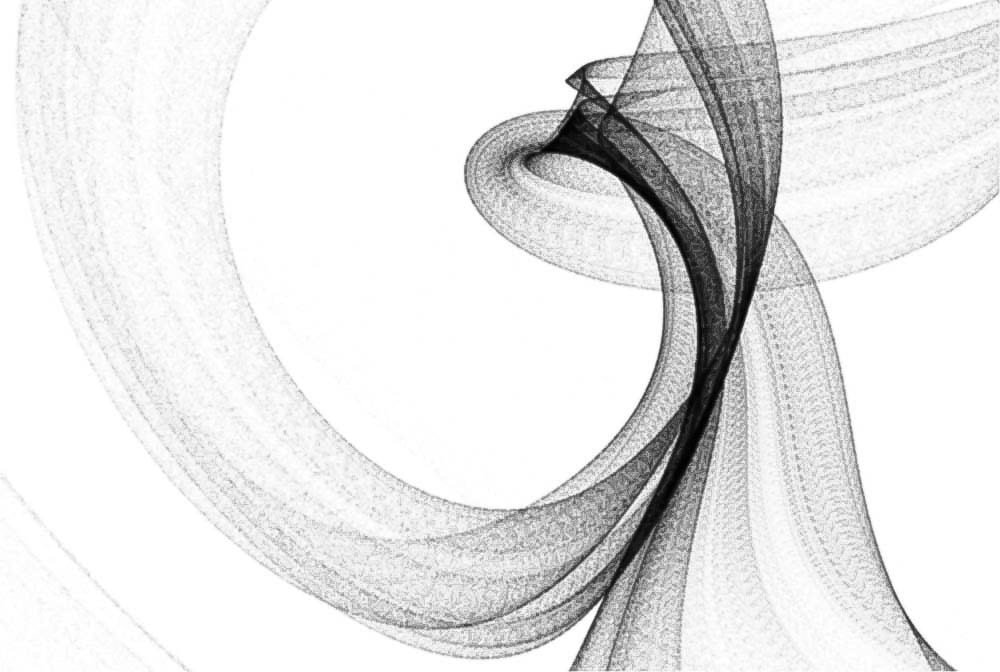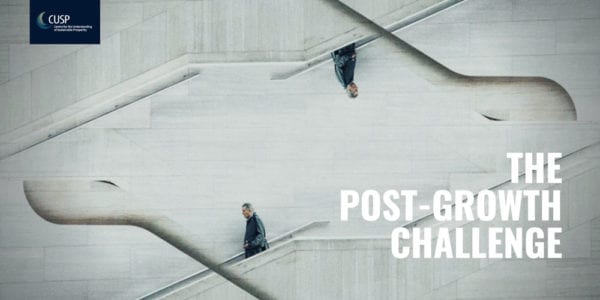Not capitalism or socialism, but both
Can we save the planet and still retain capitalism? Is transition to socialism the only way to end our addiction to unsustainable growth? Breakthroughs in economic theory may be suggesting a new answer to these questions, suggests CUSP researcher Richard Douglas: not capitalism or socialism—but both. (This article first appeared in The Mint, and is adapted from a chapter in the book Facing Up to Climate Reality, edited by John Foster.)

‘We can’t do it by just pissing around at the margins of the problem—we’ve got to go straight to the heart of capitalism and overthrow it.’ This was the environmentalist, George Monbiot, responding in a recent video to the question: ‘What can we do to save us from catastrophic climate change?’ The central problem, he said, was with the capitalist system itself. Capitalism, he said, is the ‘system which is eating the planet with perpetual growth’.
Trying to tackle climate change without abolishing capitalism would be a hopeless task, Monbiot explained. Any of the individual measures we could take to cut carbon emissions and restore ecosystems would just be swamped by the effects of ongoing, business-as-usual growth. Growth in product launches, growth in the sales’ effort, growth in debt — and growth in the carbon emissions and other impacts on the environment that would go along with it.
Monbiot’s comments attracted an outpouring of opinion—some in violent agreement but as many in even more violent opposition. Leaving aside those who rejected environmental science entirely, one set of opposing comments focused on Monbiot’s attack on growth, drawing attention to hopeful developments in low-carbon technology to argue for the possibility of ‘green growth’.
Another set of comments focused on his attack on capitalism, arguing that there were no convincing plans for an alternative economic system. These commentators would tend to point out that where an alternative has been tried, in the form of Soviet-style state socialism, the results were dismal. Not only did the Soviet Union depend on autocratic repression to sustain itself in power, but its environmental record was appalling.
Is Monbiot right? Is capitalism necessarily unsustainable? And if there is an alternative economic system that does not depend on growth, should that necessarily be called socialism? These questions are at the heart of an intense debate among radical economists. While such debate is time-honoured, the worsening state of our environment—and, since the 2008 financial crash, our economies—have made it an increasingly hot topic.
On one side of this debate are ‘ecosocialists’ such as John Bellamy Foster. For them, concern about environmental limits is joined together with one of the key tenets of Marxism, that capitalism is a system of endless accumulation. For ecosocialists, any form of post-growth economy cannot, by definition, be capitalist.
Against this position stands a school of ecological economists. Often associated with Herman Daly’s concept of steady state economics, these tend to remain agnostic about whether capitalism might in some form survive the transition to a post-growth world.
Of course, there are other schools of environmental thought. ‘Ecomodernists’, for instance, believe that with sufficient investment and innovation, growth can be made sustainable for the foreseeable future (resulting in green growth). For some, questioning the survivability of capitalism is thus an unnecessary distraction. Robert Pollin, for example, makes a compelling argument that a climate-stabilisation imperative requires an urgent growth in renewable energy investments, meaning that talk of an overall reduction in economic activity is at the moment beside the point.
Against this, one could argue that the urgent need to invest in decarbonisation does not change the fact that we still live on a finite planet. Besides which—as Tim Jackson has notably argued—in addition to the ecological imperative of capping our use of resources, there are good reasons for believing that the conditions that have given rise to economic growth to date are now giving out, resulting in a future of ‘secular stagnation’. In that context, the requirements of a new economic system, one that does not depend on perpetual growth, is a subject that surely demands to be grappled with at least theoretically.
New developments in sustainable economics
Is there a possibility of combining aspects of different perspectives within this debate, towards constructing a new synthesis within heterodox visions of sustainable economics? Recent developments in macroeconomic theory, advanced by Tim Jackson and Peter Victor among others, suggest some exciting potential in this direction. What such modelling holds out is the prospect of an economy that would be environmentally and economically sustainable, while embedding market freedoms and state management.
The crucial breakthrough in such modelling lies in the theoretical way in which it deals with one of the main arguments made by ecosocialists for the intrinsic unsustainability of capitalism. This is the argument that the dependence of private enterprise on interest-bearing credit condemns a capitalist economy to an endless pursuit of growth.
This argument runs as follows: firms require loans to finance production; in making loans, banks are essentially creating money out of thin air, on which they charge interest as their means of making a profit; this implies that the economy as a whole is in debt, and must therefore grow as a whole to repay loans and interest.
Against this point, Jackson and Victor argue that it is theoretically possible to achieve a steady-state economy, even with banks continuing to issue loans to finance firms’ production. The key here is that the banks must be prevented from issuing new credit faster than existing loans are paid off. In addition, businesses would have to keep up their loan repayments to avoid the growth, through compound interest, of their principal debt. And finally, the banks would need to spend the interest payments they receive from businesses back into the economy, either by being paid in wages to bank staff or in dividends to shareholders. If all these conditions can be met, then you could have private businesses operating in a market economy, but be able to get rid of growth—and still keep the wheels of the economy turning.
Such an economy would, in theory, preserve many of the features of a capitalist economy, while holding it within a sustainable steady-state. Doing so would, however, entail some very significant departures from capitalism as we know it. For a start, significant state management would be required to ensure the cycle of credit creation and repayment functioned as required. Even more significantly, the scope for the accumulation of private wealth through the expansion of profits would be reduced towards zero.
Capitalism without the capitalists?
Could such a system still be described as capitalism? Perhaps it depends on how we define capitalism. If we define it as an economy that features private businesses and market distribution, then the answer is yes. But if we understand it as a system with an essential drive for endless accumulation, then no. As the Marxist economist, Minqi Li, has written, if a non-growth economy means not being able to accumulate capital, ‘then what’s the point of being a capitalist?’ If capitalism could survive the transition to a post-growth economy, it would appear then to be that strangest of beasts: capitalism without the capitalists.
But perhaps this notion of ‘capitalism without the capitalists’, far from being an embarrassing contradiction in terms, represents a theoretical strength. One thing it resembles, in fact, is a conception of ‘markets without capitalism’ which characterised the idea of market socialism as developed in the 1980s and 1990s by Julian Le Grand and others.
Here, too, was a conception of a new type of economy in which the forms of capitalism were retained but put to work, via a framework established by the state, towards the achievement of ethically-selected ends. This vision was depicted as having a number of cardinal virtues—equality, liberty, efficiency, and practicality—which promised advantages over both capitalism and state socialism.
Perhaps what we can see in the new developments in macroeconomics typified by Jackson and Victor’s work are the beginnings of a convergence of capitalism and socialism, within the terms set by environmentalism. Once you combine (i) the need to rapidly constrain our exploitation of the environment with (ii) our needs (insofar as we can) to go on living in a certain fashion—as highly populous, diverse, technologically advanced societies—then the possibilities for economic organisation have to take on a certain shape. Abiding by environmental limits, abolishing the drive for perpetual accumulation, respecting the internal dynamics of macroeconomic stability, and preserving a sense of pluralism, freedom, and dynamism—these are the defining conditions for any viable economy from this point forwards.






